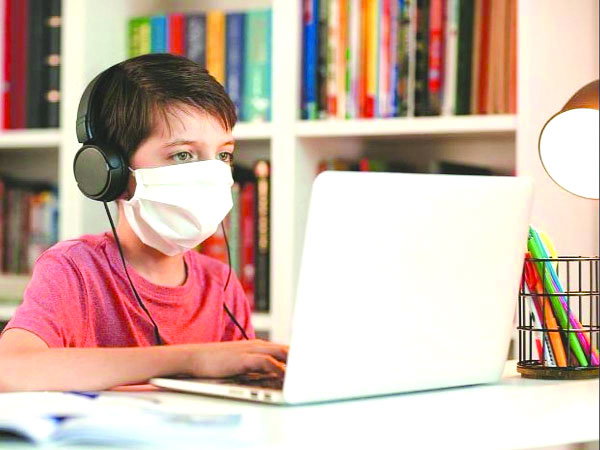Besides debate on whether online teaching can make up for the loss of classroom teaching, the major challenge is how to develop mechanism to overcome the rigmarole of regulations to take effective decisions
Amid the Covid-19 pandemic the education system in India has been witnessing challenges with significant impact on higher education.
To deal with the situation, experts have talked about what should be the course of direction with regard to the pattern of completion of course work, methodology of teaching and examination.
The Higher Education Information System’s recent attempt to ensure high level of partnership among institutions through equity and access to all shows the level of insight in empowering and motivating students and faculty members.
Besides, the pursuit of the National Education Policy (NEP) to cover school, adult, higher education and efforts towards promotion of Indian languages and online education exhibit tremendous effort towards enhancement of overall educational scenario.
Indian universities are being encouraged to improve their performances by making a push towards a more merit based peer reviewed research and the chimera of fulfilling the aim of 6 per cent of GDP expenditure on education.
A few experts are of the views that we have at least got an opportunity to analyse and address the multidimensional issues in the education sector.
Whereas for some it is a welcome sign that we would draw a framework for key demands of the higher education while maintaining a synergy between various actors and stakeholders, there has been a section which strongly feels that the idea of online teaching can never replace the existing system of classrooms teaching. For many others, it is not clear that segregation of the practical and theory papers, particularly for MBA courses, can be a feasible option if the future trends compel us to follow the undesirable.
Ensuring proper monitoring of education sector on day to day basis as done by the authorities can ensure growth in changing circumstances.
In the midst of argumentation and generation of discourse it is imperative to look at the process from neutral stand. But at times different point of views creates insights about the way in which the ideas and emotions get translated into effective decision-making process.
The Union Ministry of Education has opened up conceptual and scholastic discussions which may result in the creation of exquisite thoughts and a new vision for the growth of a stupendous education system even during the crisis of unprecedented magnitude. It is high time we realised the gravity of challenges encountered by the higher education.
The importance of education for the physical, intellectual and moral will always be on high pedestal because education frees a person from the clutches of darkness and bigotry.
But many a times the questions and desires of competition, comparison and personal greed leads to the problem of manipulation and taking recourse in shortcuts. The Right to Freedom of Expression in democratic societies has been debated many times. Recent developments in academic world have posed new challenges about the changing nature of problem and the huge competition quagmire that still lurks.
The University Grants Commission (UGC) has shown serious concern over the increasing number of predatory, cloned and substandard publications and emergence of a number of web opinion sites coupled with arrangement of predatory conferences. In a highly proactive step, the UGC has issued strict directions and created high quality list of journals to be considered the only valid publication category.
As a result of the long quest for excellence the UGC established Consortium for Academic Research and Ethics (CARE) to ensure and promote pious academic integrity and quality research and teaching.
This would help in broadening the ethical horizon and enhancing the decision making capabilities but also letting new generation know what is ethically and morally correct.
When it comes to ethics it means going beyond the set clichés and moving from paradigm to paradigm shift. We ought to try our level best to kindle the flame by ensuring the sensitisation of students and faculty members in this direction. It is difficult to change the direction of the wind, but we can do our bit in adjusting ethical sail towards the path of development of ethos.
The major challenge will be its dealing with professional institutes. How to develop mechanism to sensitise the stakeholders of these institutes to overcome the rigmarole of regulations, and take decision.
It is daunting task to deal with the emerging challenges due to mushrooming of a number of private educational institutes. There is a strong need to identify new ways to judge the qualitative competence of candidates by laying a lot of importance on improving analytical and observatory qualities of the candidates through cognitive discourse and seeking multiple options and viewpoints in order to help in forming an integrated texts and questionnaire.
(The author is a professor and expert on strategic affairs)

























